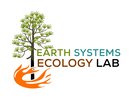|
Assuming you’ve thought long and hard about why you want and advanced degree in ecology and what specific sub-discipline you’ve decided to pursue, below I provide some advice on how best to approach the grad school application process.
Do not just apply to a program without first contacting potential advisors. Every year I get 1-3 students that do this and list me as their potential advisor. If I’m taking students that year, I’ve already encouraged 2-3 students to apply and will not look at your application. You may think that is harsh, but here is why I do what I do: I don’t want students to spend the time and money required to apply to our program unless I think they will be a good fit in my lab and that I think I will be a good advisor for them. Here is what you should do. Reach out to people whose work interests you 2-4 months before the application deadline. Hopefully you’ve identified these people based on their publications. Make sure that you check their website for materials that they request of potential applicants and provide them with your initial email. I ask for a CV, a one-page description of research interests, and unofficial transcripts. I’m not looking for a ground-breaking question that you want to pursue. I’m trying to evaluate if you’ve thought through what you want to research and if you can present it in a coherent manner. Assuming you get some interest from the potential advisor, then you need to plan for your first interaction with them beyond email. I schedule a video call with potential students so that we can each learn more about how the other operates. You need to be prepared for questions relevant to the work we do in my lab. I often ask potential students which of my papers they found most interesting and why? Your answer will help me understand why you’re interested in the work we do and what specifically about forest ecology gets you excited. After having interviewed several students, I’ll recommend that 2-3 formally apply to our program. Sometime following your application, it is important to schedule a visit. Many programs/advisors will support your travel to visit, but even if they don’t, this is a worthy investment. This is your opportunity to get a sense of the department and the program. Most importantly, this is your opportunity to meet with your potential advisor and lab. I schedule time for potential students to meet with my current lab without me present. You need to ask current students how your potential advisor operates, what kind of support they provide, and what their expectations are. This is your opportunity to gather data about how well you think the potential advisor’s approach will work for you. You should also feel free to contact students who have graduated from the lab. They have a complete picture of the process. To make this process effective, you need the self-awareness to know what you require to be successful. Make sure you give this some thought well in advance of this process. Remember, this process is a two-way street. The potential advisor is interviewing you, but you also need to be interviewing them.
0 Comments
|
Details
Archives
October 2023
Categories
All
|

 RSS Feed
RSS Feed